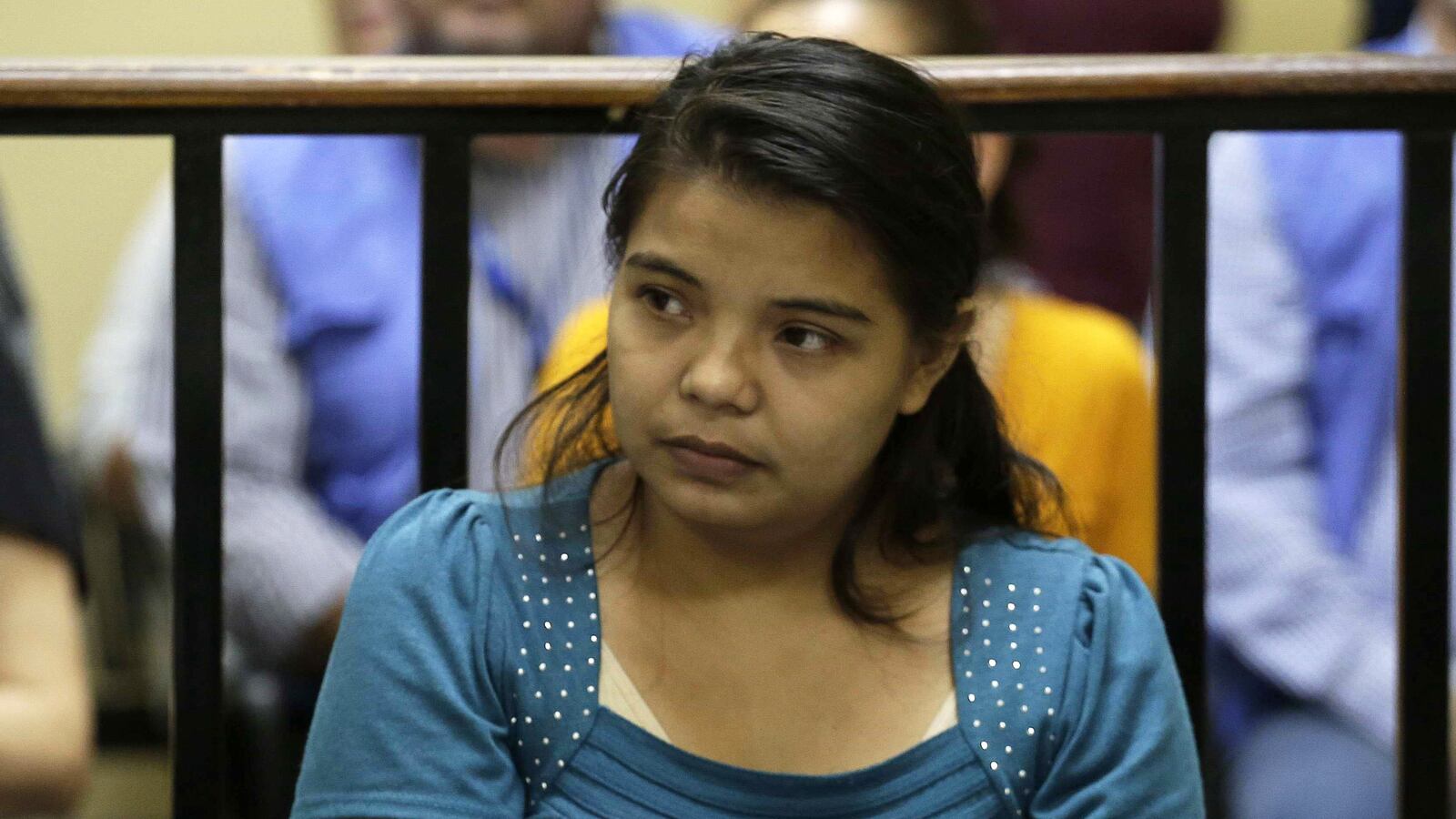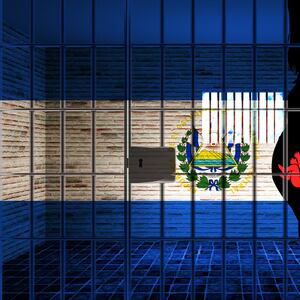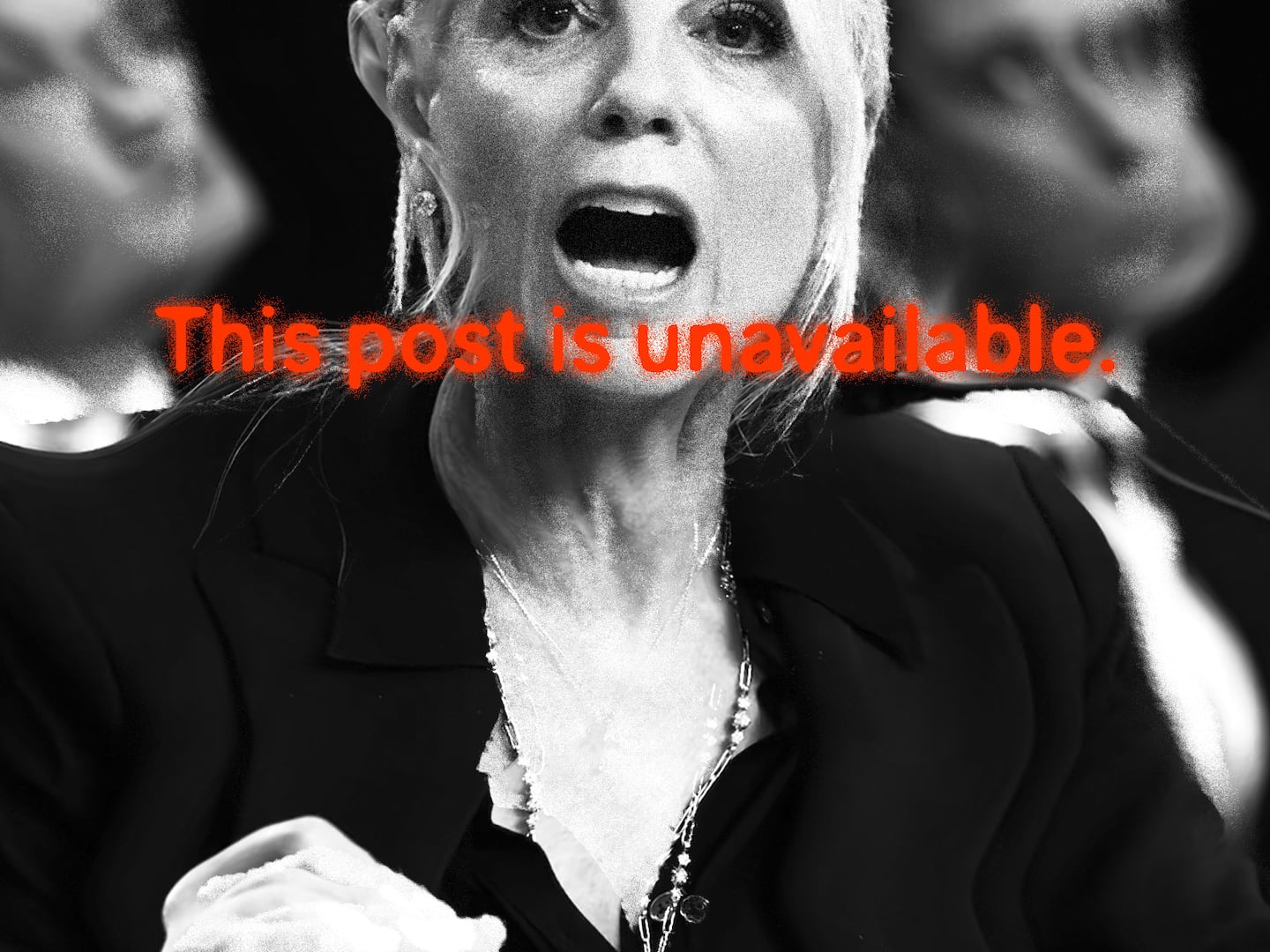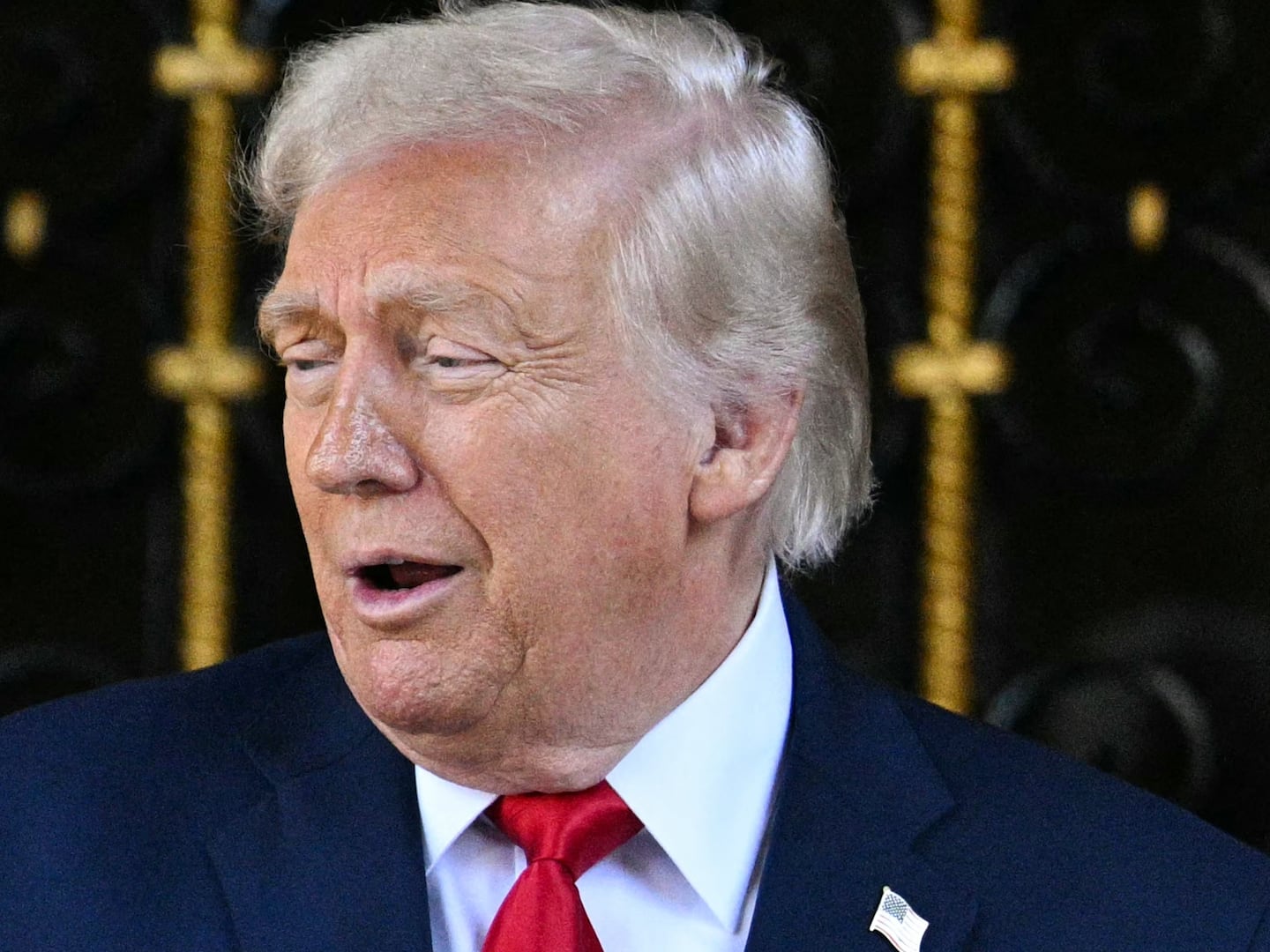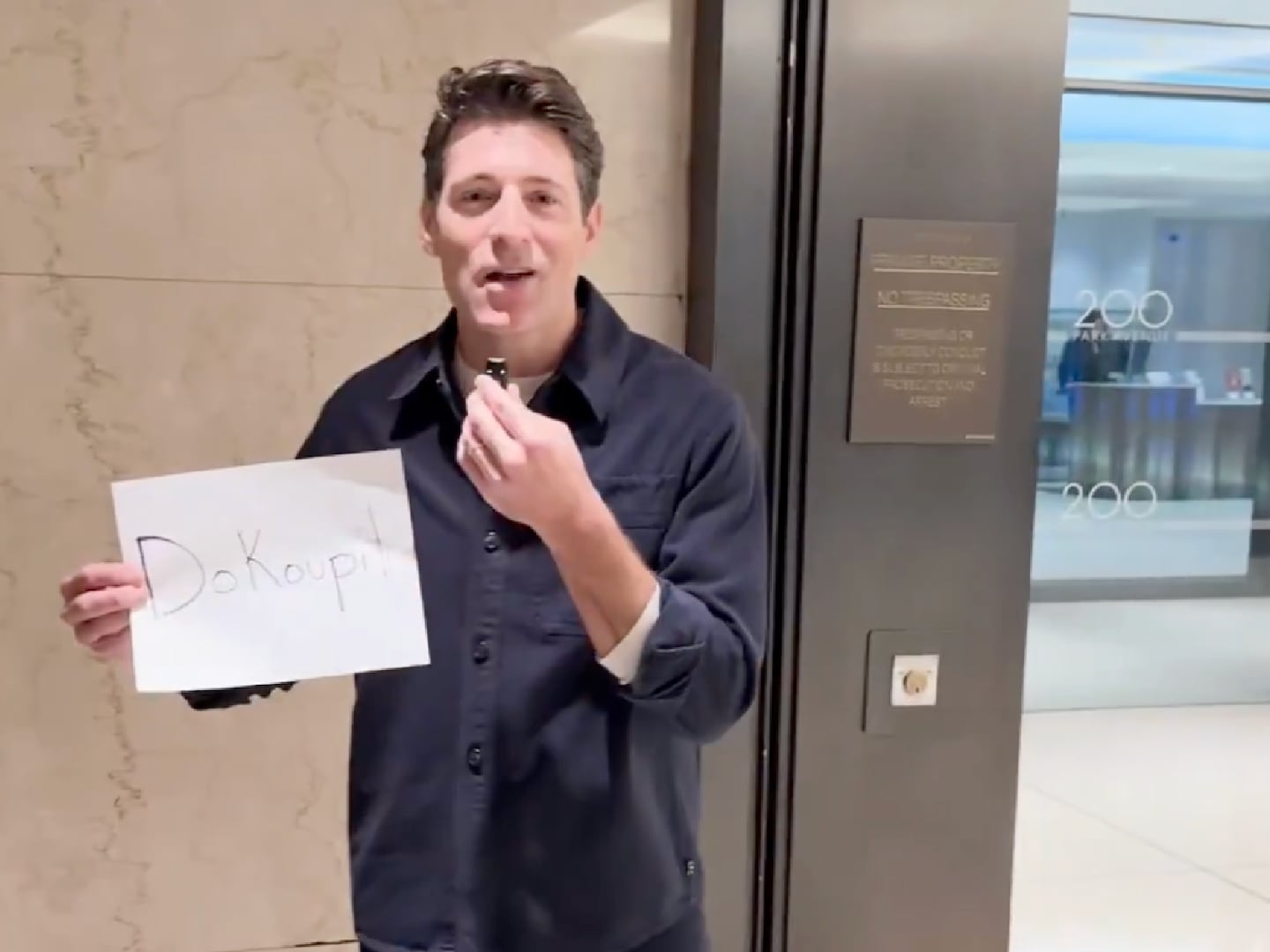After spending nearly two years in jail awaiting trial, a young woman in El Salvador accused of trying to abort her rapist’s baby walked free on Monday.
Prosecutors had charged Imelda Cortez, 20, with trying to end her pregnancy, galvanizing an international debate around El Salvador’s 21-year abortion ban.
Reproductive rights activists rallied outside the courtroom on Monday as Judge Manuel Jesus de Santos found Cortez—who could have faced 20 years in prison—not guilty on all charges.
The controversy began when Cortez was arrested after giving birth outside her home in rural Jiquilisco at age 18. She says that after experiencing intense stomach pain, she ran to a public toilet, called to her mother for help when she began bleeding heavily, and then passed out from the pain. She was taken to a nearby hospital, leaving the newborn behind.
Prosecutors, however, claimed Cortez induced an abortion and left the baby behind on purpose. She maintains she was unaware of the pregnancy the entire time.
Because of El Salvador’s strict ban on abortion in any situation, activists say women are frequently jailed after experiencing miscarriages, stillbirths, or unexpected births. But the Cortez case drew additional outcry because the teenager told investigators she was impregnated by her 70-year-old stepfather, who had been raping her since age 12.
Prosecutors initially accused Cortez of making up the allegations to avoid homicide charges, but a DNA test later revealed the baby was the stepfather’s. He was arrested on charges of aggravated assault of a minor earlier this year.
At Cortez's initial hearing in September, defense lawyers reportedly produced medical examinations showing her baby had no signs of deliberate harm. The defense was prepared to argue Monday that there was no physical evidence or testimony to support the charges, according to activist group Las 17.
Instead, the judge agreed to a proposal to drop the attempted aggravated homicide charge, recognizing that Cortez was a victim of sexual violence and had not intended to hurt the child. He then found her not guilty on the lesser charge.
Paula Avila Guillen, the director of Latin America initiatives at Women's Equality Center, said she was “extremely happy” with the result and grateful for everyone who had spoken out about the case.
“We believe the reason why the prosecutor lowered the charges was because they were able to understand the situation of Imelda and they were able to feel the pressure and recognize what they were doing was unfair,” she told The Daily Beast.
But Avila Guillen also drew attention to dozens of women still imprisoned on similar charges in El Salvador. More than 60 women have been arrested on suspicion of having an abortion since the practice was outlawed in 1998, and more than 20 are currently in prison.
Catalina Martinez, regional director for Latin America and the Caribbean at the Center for Reproductive Rights, said the harsh legislative climate in El Salvador prevents many women from seeking maternity care.
“Many women who suffer an obstetric emergency do not seek for medical assistance because they fear the will be imprisoned,” Martinez said in an email. “Women do not trust the medical system to fulfil their needs for care.”
Women’s groups have in recent years rallied against the ban, pushing for exemptions in cases of rape or human trafficking, when the pregnancy is not viable, or when the pregnant woman’s life is in danger. A bill proposing these exemptions is stalled in committee, but activists managed to bring international attention to the cause through radio ads, press conferences and news coverage.
Visiting the country in 2017, U.N. High Commissioner for Human Rights Zeid Ra’ad Al Hussein said he was “appalled” at the total ban on abortion and called on the government to repeal it. Dutch ambassador Peter Derrek Hof this year toured the prison where the majority of the women are imprisoned and said he was “shocked” by their stories. Meanwhile, Chile voted last year to loosen its abortion ban in some cases, putting pressure on its neighbors to follow suit.
The campaigners have also had some success in getting women released on appeal, including Maira Verónica Figueroa Marroquín, 34, who was freed this year after serving 15 years for what her supporters say was a late-term miscarriage. Carmen Teodora Vásquez, also 34, was released earlier this year after serving more than 10 years in prison and has now joined activists in calling for an end to the ban.
Many of these same women rallied outside the courthouse on Monday, carrying signs reading “Justice and Liberty for Imelda” and “Children Not Mothers.” Dozens of others posted photos of themselves on social media posting signs reading #SalvemosAImelda, or “Let’s save Imelda.” Avila Guillen said the activists would continue their work until every woman was freed.
“It should not take the force of the entire world to free one woman,” she said. “That’s what it took in this case. And if it takes that in every case, that’s what we are going to do.”

